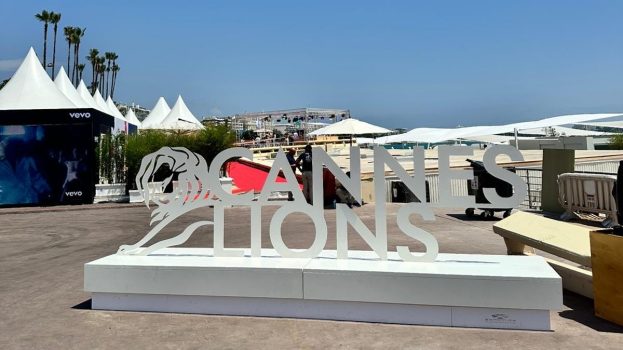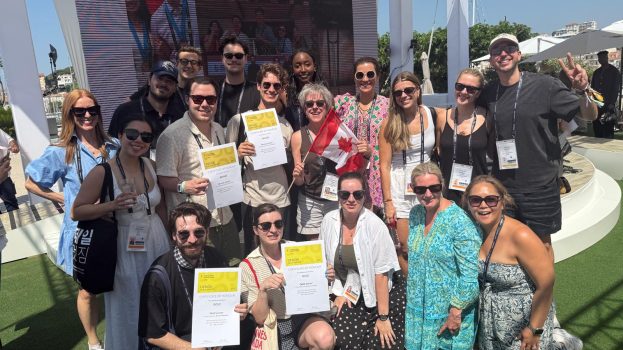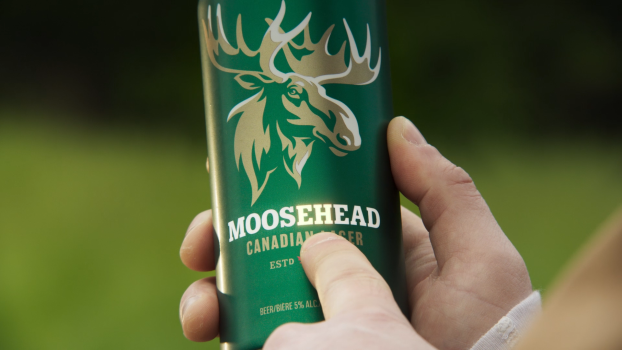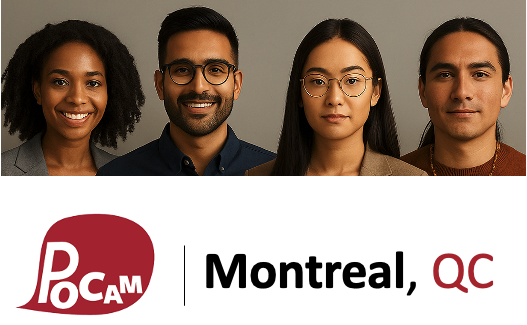Pre&ent, a Montreal-based company, has launched a platform featuring an image bank and workshops that can help marketers, communicators and creatives be more inclusive in their approach to work.
This is a marked departure from the “lean landing page” that co-founders Ingrid Enriquez-Donissaint and Laurence Pasteels had in place after they first began crowdfunding for their business idea in 2020, more than a decade after they met while working at Sid Lee. Enriquez-Donissaint’s ties to the industry are as a brand and strategy planner (working for Folk, Tam-Tam\TBWA and GSoft, among others) and Pasteels’ is as a creative director (working for Moment Factory, C2 International and Cirque du Soleil Entertainment Group, among others).
The company’s name, pronounced as ‘present,’ was chosen because it could work in both official languages. It is meant to represent “people being at the centre, being part of the message, being able to act” explains Pasteels.
The idea for the company came after George Floyd’s death, which spurred the two women to think about how they could provide something valuable to the industry that allowed them to apply their professional expertise. As one of the company’s starting points, they sent surveys to creatives in the industry with such questions as “what’s the place that DEI occupies in your life?” and “when it’s time to develop concepts or ideas, what is it that motivates you or stops you in your tracks?”
“One thing that stood out were people who would say: ‘I want to make sure I bring everyone in the right way, but I’m afraid to mess up and do it in an inauthentic way, or rub a person or community in the wrong way, so I’d rather not do anything at all,'” Enriquez-Donissaint says.
Providing more inclusive images to the industry seemed a relatively easy place to start, but even that had its own challenges.
“How do you stand out?” Enriquez-Donissaint says. “How do you have impact in a world where image banks already exist, and where we were on the verge of welcoming AI images in our lives as well?”
She says the idea was to provide images that weren’t perfect, but that were ready and felt less intimidating for people in the industry to use for work. While Pre&ent’s first year was spent crowdfunding, its second was spent building out its product offerings. Now, Pasteels says the company has partnerships with photographers from different backgrounds and perspectives, and has banked 300 to 400 photos to date.
“Authenticity in photos is key to what we’re trying to do,” Pasteels says. “We don’t want to recreate fake houses or how people dress. You could call it a journalistic approach of how to capture the activities of people we want to shoot, their interactions. The accident is what we’re seeking. And we hope this approach resonates with audiences.”

Enriquez-Donissaint says that their initial surveys among creatives also showed that “people wanted to make the effort to change the way they work, but didn’t know where to start,” which was how the idea for the workshops came about. The women hired DEI experts to facilitate the courses, and the company’s clients thus far have included Ubisoft, Radio-Canada and Sid Lee. There are currently six workshop topics, such as “Introduction to Representation,” “The Representative Brief” and “Uncomfortable Conversations.”
“The world is changing rapidly, so how do we keep up and how do we help people keep up with what’s happening?” Pasteels says. Building long-lasting conversations with our clients is interesting, as some do want to embrace DEI at the centre of their core, and that’s going to be what’s valuable, how we make things change.”
Enriquez-Donissaint says that the company’s aim is to eliminate many of the awkward and uncomfortable moments for people working in marketing, communications and media, and for people watching TV and reading a book or the news.
“Our simple wish is for as many people to be seen as they are, in a genuine way,” she says. “We’ve observed, again and again, that most humans feel grand when portrayed with care and substance.”























